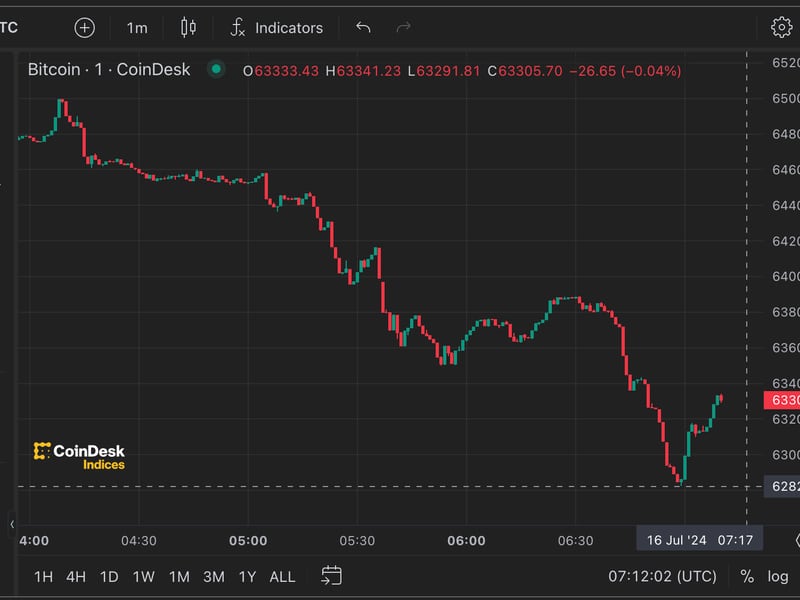Blockchain Bites: Hodl Hodl’s No-KYC Bitcoin Lending, Voyager’s Token Merging M&A Deal, Crypto’s Reaction to PayPal
Blockchain Bites: Hodl Hodl’s No-KYC Bitcoin Lending, Voyager’s Token Merging M&A Deal, Crypto’s Reaction to PayPal
Hodl Hodl announced a P2P lending service, with no KYC requirements. Ant Group is continuing to research and release blockchain-based services. And what people are saying following PayPal’s crypto market entrance.
Top shelf
Bitcoin buys
Following a wave of institutional bitcoin buys, crypto custodian Hex Trust and multinational payments gateway Sia have partnered to provide an easier path for banks to hold digital assets. Announced Thursday, Hex Trust will offer custodial software to banks, through Sia, to enable them to hold bitcoin, security tokens and central bank digital currencies for their banking clients. Currently, Hex Trust works with three banks – Mason Privatbank Liechtenstein AG and two unnamed Asian banks. Hex Trust CEO Alessio Quaglini said the firm has 10 other banks that are exploring the custodian’s products.
Bitcoin DeFi?
Hodl Hodl, a non-custodial bitcoin exchange, is launching a lending product seeking status as “the first true bitcoin DeFi” product. Users will be able to borrow USDT, USDC, PAX or DAI stablecoins in a peer-to-peer fashion, without going through know-your-customer (KYC) procedures, leaving their bitcoin as collateral. Hodl Hodl’s Lend marketplace will not act as a custodian and won’t store bitcoin collateral, instead opting for a multisig setup where lender, borrower and Lend each get a key. The lender and the borrower will agree on the amount, time period, interest rate of the loan and the loan-to-value (LTV) ratio, which can be anywhere between 30% and 70%. Lend will take a 2% commission from each deal.
Token merger
Voyager Digital, a publicly traded digital asset brokerage, has agreed to buy LGO, an institutional-focused crypto exchange. As part of the merger, which is awaiting regulatory approval, the companies will merge their two utility tokens, VGX and LGO, for newly minted tokens featuring decentralized finance (DeFi) functions such as community governance and staking at an initial interest rate of 7%. “We think this is really taking the old-school mergers and acquisitions to the token world, which hasn’t been done before,” Steve Enrlich, Voyager’s CEO said. Upon completion, Voyager will issue one million shares for the acquisition and operate in the European retail market with LGO’s Virtual Asset Service Provider registration.
Stablecoin interoperability
Austria-headquartered Raiffeisen Bank International (RBI) is piloting an interoperability tool designed to connect tokenized fiat currencies (read: stablecoins) to multiple blockchains. The initiative will see the bank’s RBI Coin integrated with the Pantos blockchain interoperability tool from Vienna-based cryptocurrency exchange Bitpanda, according to a press release on Thursday. RBI Coin facilitates near-instant payments between banks and businesses. Raiffeisen hopes the proof-of-concept will eventually lead the banking industry to become “technology-agnostic in the field of fast-changing blockchain technologies.”
Ant’s efforts
Ant Group has unveiled a new blockchain-based service for copyright claims. Built on the AntChain network and using AI technology, the digital copyright platform allows creators to “quickly authenticate and verify a variety of original works,” the company said in a press release, by providing search tools, a method of analyzing for original content and a system of “unique digital copyright certification[s]” containing information about the work. These notarized, and “tamper-proof,” certifications could be submitted as evidence in copyright infringement and tort disputes.

Most Influential 2020: Cast Your Vote
2020 has not been a good year by most metrics. There is no way to avoid this in a year-end retrospective.
Every year, CoinDesk recognizes the “Most Influential” people working to expand cryptocurrency and blockchain’s reach. It’s a list of the 10 outsized individuals who have gone the furthest and done the most.
In this most unusual year, we need your help determining who should be named as Most Influential. Check out the list of the top contenders and cast your vote by Oct. 31.
Quick bites
At stake
The middle ground?
In the wake of charges brought against BitMEX, a bitcoin derivatives exchange that operated for nearly its entire existence without know-your-customer (KYC) requirements, the topic of financial privacy and splinter economies has never been more heightened.
In crypto, the privacy debate is often waged between originalists, who view these cryptographic monies as a means to transact, no questions asked, and the mainliners, who are willing to sacrifice some of crypto’s independence to reach the mainstage of the global economy.
CoinDesk’s Ian Allison explored this divide yesterday in an article rounding up reactions to PayPal’s crypto market entrance. In offering crypto trading and transactional services to a pool of 346 million users and 26 million merchants, the fintech giant will require full KYC and inhibit self-custody.
“Yes, if you’re a pure libertarian, it’s not ideal. But being pragmatic about bitcoin’s trajectory and global adoption penetration rate, this certainly brings more options,” said Charles Hayter, CEO and co-founder of data site CryptoCompare.
PayPal is not alone. Deribit, the largest crypto options exchange by trading volume, recently decided to implement mandatory ID verifications by year’s end. Users will now be required to submit government-issued photo identification, as well as a proof of residence.
This follows on BitMEX’s announcement to accelerate its own planned KYC program. Charged by the U.S. government with facilitating unregistered trading, BitMEX said all of its customers would need to verify their identities by Nov. 5, three months earlier than the original deadline.
Opposingly, today Hodl Hodl unveiled a product that will enable KYC-less, P2P lending, bucking the trend of payment and lending firms to require users to register using their real identities.
While not a perfect analogy, perhaps one way this battle will shake out follows from reactions to the Financial Action Task Force’s “Travel Rule.” Coinciding with CoinDesk’s Consensus: Distributed conference, analysts assessed the knock-on effects of these anti-money laundering financial regulations on tools designed to eschew national borders and mandates.
Speaking at a panel discussion, Bakkt President Adam White said most crypto companies will fall in line – though there will always be a contingent that stands apart. If that happens, there could be a viable “gray market” between the regulated and unregulated, verified and unverified, and KYC’d and non-KYC’d.
Who won #CryptoTwitter?











